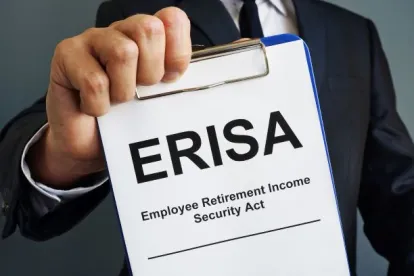On December 11, 2020, the Department of Labor (DOL, or Department) issued final regulations providing rules under applicable provisions of ERISA concerning how plan fiduciaries should exercise shareholder rights, including proxy voting. Overall, the final rule reflects the DOL’s recent focus on the consideration of pecuniary and economic factors above all else in determining whether plan fiduciaries are meeting their duties of loyalty and prudence. The final rule reflects a significant departure from previous guidance, which contained specific requirements and prohibitions on the activities of plan fiduciaries.
Background: The DOL’s long-held position is that the exercise of proxy voting rights of shares held within an ERISA plan is a fiduciary decision. The duty to exercise these rights (whether by the plan’s trustee, investment manager, or plan sponsor) is generally set forth in relevant plan documents and is often undertaken with the assistance of third parties such as proxy advisory firms or third-party consultants, which provide research and recommendations on how to vote on specific proxy proposals.
Prior guidance (set forth in DOL interpretive bulletins) has varied depending on whether the administration at the time of issuance was Republican (George W. Bush) or Democrat (Barack Obama), with Republican-issued guidance tending to have a more narrow approach and Democrat-issued guidance a broader approach regarding the issues on which plan fiduciaries can and should vote. The current rule focuses the DOL’s position on a number of issues, with the overall theme being the Department’s focus on economic return as tantamount.
First, the DOL highlights a perceived “misconception” that the Department believes arose from Obama-era guidance — that plan fiduciaries must exercise shareholders’ rights in all circumstances. The current rule makes clear that this should not be the case. Further, the DOL takes issue with the increased reliance on proxy advisory firms and third-party consultants that advise plan fiduciaries on proxy matters. The Department believes the cost associated with outside assistance often exceeds the benefits associated with the advice, and therefore plan fiduciaries should limit their reliance on such third parties. Finally, the DOL points out that the increased number of environmental, social, and governance proposals in recent years has resulted in plans voting on more and more proxy matters, and the Department’s position is that such matters do not necessarily affect the economic interests of plan participants.
Contents of the Final Rule: The final rule sets forth six obligations that a plan fiduciary must adhere to when considering whether to exercise shareholder rights.
-
Act solely in accordance with the economic interest of the plan and its participants. The guidance warns that the consideration of what constitutes an “economic interest” should be narrowly tailored, which is consistent with the overall theme that proxy voting should not necessarily be exercised in all cases.
-
Take into account costs involved in exercising shareholder rights. Under the final rule, relevant costs may include compilation of proxy materials, analysis of matters to be voted upon, and submission of proxy votes to be counted.
-
Do not subordinate financial interests of participants to nonpecuniary objectives. Accordingly, in the Department’s view, the furtherance of policy, political, social, or environmental issues through proxy voting are unlikely to increase economic value, and therefore a fiduciary may be required to vote against such proposals, or refrain from voting.
-
Evaluate the material facts that form the basis of the proxy vote. The guidance indicates that a fiduciary is under no obligation to investigate all relevant facts, but only those facts that are required for the fiduciary to make an informed decision.
-
Maintain records of proxy voting and other exercise of shareholder rights.
-
Exercise diligence and prudence in selecting proxy advisory and other service providers. This obligation is a restatement of the general ERISA fiduciary obligation to select and monitor service providers. In this context, the fiduciaries must analyze the qualifications of the service provider and the reasonableness of the fees charged for services.
The final rule incorporates two permissive “safe harbors” that plan fiduciaries may adopt in meeting the obligations described above.
-
Vote only on proposals of corporate significance. Under this approach, voting would be limited to specific types of proposals that are substantially related to an issuer’s business activities or are expected to have a material effect on the value of the issuer. For example, the policy may only permit voting on corporate transactions such as mergers, acquisitions, dissolutions, conversions, share repurchases, issuance of additional securities, or contested director elections.
-
Refrain from voting when the plan’s interests are minimal. This safe harbor would not require a plan to vote on proposals where the size of a plan’s holdings are below certain thresholds and therefore unlikely to influence the outcome of a vote (i.e., less than 5% of the total outstanding shares of an issuer that are eligible to vote).
The Department instructs that these safe harbors may be adopted independently or in conjunction with one another, and do not have to be adopted in all circumstances, affording plan fiduciaries maximum flexibility in determining when to adopt one or both safe harbors.
Finally, the rule addresses a few areas where proxy voting may be particularly complicated. Specifically, the rule clarifies:
-
In situations where a fund holds the assets of multiple plans subject to ERISA, the manager of the assets must undertake its best efforts to reconcile the proxy voting policies of each investing plan, or alternatively develop its own investment policy governing proxy voting and shareholder actions, which participating plans may ratify.
-
In situations where a proxy advisory firm has been retained or proxy voting has been delegated to an investment manager, the fiduciary must monitor the activities and performance of the advisor to ensure that the advisor is acting consistent with the obligations under the final rule.
Effective Date: The final rule will be effective on January 15, 2021. However, the DOL has provided for later applicability dates for certain provisions in the rule. Specifically, fiduciaries other than registered investment advisors have until January 31, 2022, to comply with the following obligations: (i) evaluate material facts that form the basis of a proxy vote, and (ii) maintain records of proxy voting and other exercises of shareholder rights. Further, all fiduciaries have until January 31, 2022, to comply with the obligation to exercise diligence in monitoring third parties to whom the fiduciary has delegated proxy voting responsibilities.
The final rule will be effective before the Biden administration takes office, and it remains to be seen how the new administration will react to this rule. If the new administration wishes to overturn or revise the rule, it will have to undertake the entire notice and rulemaking process. Alternatively, the Biden administration could attempt to chip away at the final rule’s effectiveness by issuing sub-regulatory guidance or refusing to enforce its provisions.
Recommendations and Next Steps: In response to the new rule, plan sponsors should review and revise their proxy voting policies to ensure that the language is consistent with the obligations described above. Further, plan sponsors will want to review any delegation of proxy voting authority and, if necessary, incorporate the provisions of the new rule. From an operational standpoint, plans should be ready to change their proxy voting practices and ensure that any third party which exercises rights on the plan’s behalf is familiar with and capable of meeting the obligations under the new rule. In terms of macro effect, the rule will likely reduce the frequency of proxy voting by plan fiduciaries and reduce the need to retain third-party advisory firms.







 />i
/>i
